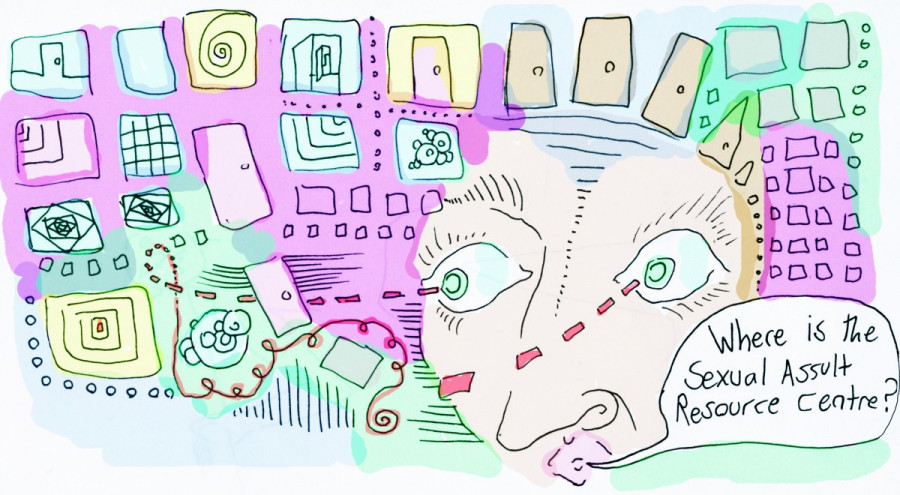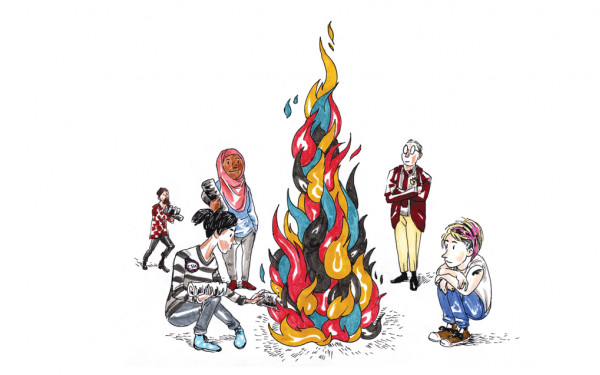Editorial: The Sexual Assault Centre Needs More From Concordia
Nearly a year and a half after Concordia’s Sexual Assault Resource Centre was finally established on campus, it’s lacking resources of its own.
The centre has only one paid, full-time employee and relies heavily on volunteers. Although those who work at the centre are undoubtedly committed, there are obstacles at the administrative level to making their work more effective.
The visibility of the centre at the university, physically and virtually, has vast room for improvement. The SARC is located down several winding corridors on the third floor of the GM building, well out of the way of everyday student traffic. A search of Concordia’s website does not lead pursuers to a list of contacts nor useful information intended for those seeking help without first clicking through several pages. Compounding the problem, the centre also doesn’t have any social media presence.
Another point of contention is Concordia’s official harassment policy, adopted in 2011, which doesn’t include the term “sexual assault.” The phrase is not mentioned at all, in fact. As SARC coordinator Jennifer Drummond explained, the haziness of Concordia’s current terminology makes sexual assault survivors unsure whether their own experiences “count” or are reportable.
It’s welcome news that Concordia is beginning an internal review into its sexual assault policy and the visibility of services. We have faith that the refreshingly interdisciplinary committee, made up of academic and legal figures from the university as well as undergraduate students, will provide an insightful overhaul of the policy. But we also hope that they’ll listen to the needs of students for whom this service was sorely lacking until recently.
This, of course, is symptomatic of a larger culture where sexual assault survivors are led to constantly doubt themselves and are even blamed for their own assaults. Unfortunately, this is demonstrably typical of experiences at Canadian universities. High-profile cases such as that of high school student Rehtaeh Parsons and Columbia University undergrad Emma Sulkowicz, to name only two, have unfolded and continue to unfold in the public eye—to say nothing of the countless number of assaults that never receive any such attention. The protection of victims is far too often overlooked by various authority figures, police officers, and members of the community, who aren’t able to provide the necessary social support victims need in times of distress either due to ignorance or to lack of know-how.
Any academic institution that intentionally or indeed unintentionally complies with the status quo does a disservice to its mandate. Concordia president Alan Shepard has expressed that the SARC appears to be functioning well, and while this is likely true, a sexual assault centre should strive to be maximally beneficial to the students who end up needing to use it rather than just good enough.
Although Concordia is facing a series of stringent financial cuts from the government, we feel it is important that they increase the outreach of the centre, the dissemination of safety information, and the number of permanent staff at SARC. Prevention through education should be the first priority, so making information easily visible and accessible is a simple and effective strategy that Concordia could implement. Relying on one person and a group of volunteers to serve a 46,000-strong student body is unwise, and additional staff would allow the centre to assist more people and achieve greater reach in their initiatives.
We’re looking forward to seeing the results of the review and its recommendations, hopefully this semester, as Shepard suggested. The crucial next step will be the implementation of those recommendations. Concordia addressed a critical gap in its services when the centre finally opened, but there’s still much to be done to provide students with the full range of services they deserve.





.WEB_600_375_90_s_c1.jpg)
_600_375_90_s_c1.jpg)
_600_375_90_s_c1.jpg)